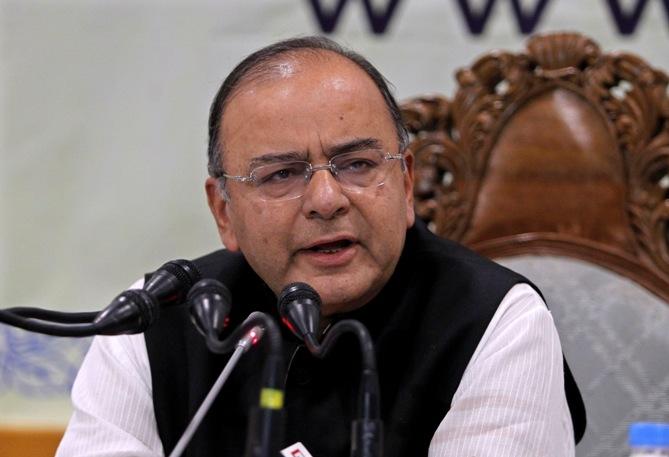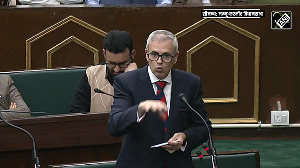 With the landmark Goods and Services Tax Bill stuck due to opposition from the Congress, Finance Minister Arun Jaitley said he is willing to reach out to Rahul Gandhi to get the biggest reform agenda in two decades passed by Parliament.
With the landmark Goods and Services Tax Bill stuck due to opposition from the Congress, Finance Minister Arun Jaitley said he is willing to reach out to Rahul Gandhi to get the biggest reform agenda in two decades passed by Parliament.
"We are willing to speak to any of their leaders," Jaitley was quoted as saying by Bloomberg News.
Asked if that includes Rahul Gandhi, Jaitley said: "Certainly. Why not?"
The GST Bill, which will subsume more than a dozen state levies to create a single market, is to be implemented from April 1, 2016. But the deadline may be missed if Parliament does not pass the Constitution Amendment Bill in the upcoming winter session.
"I would try and persuade them to have it cleared now, as soon as possible, because it is going to be one of the most important reforms in India," he said.
Once the Bill is passed, more than half of the states have to ratify it before Parliament passes another enabling bill to implement GST. The GST rate would have to be set by the proposed GST Council, which will be headed by the Union finance minister and have state ministers as members.
The Congress is opposed to states being given powers to levy 1 per cent tax over and above the GST rate. Also, it wants alcohol and petroleum products to be included in the GST regime.
"Since it is a Constitution amendment and it will stand the test of time, I don't want to create an architecture which is faulty, and some of their suggestions could hurt that architecture," Jaitley said when asked if he would compromise.
"But if there is something which doesn't hurt but strengthens the GST architecture, I am certainly willing to look at it." The Finance Minister said he is willing to speak to anyone who disagrees with him.
"Anyone in the government can speak to people -- there's no difficulty at all," he said. "So far, we have been speaking to the more accessible section of the Congress party."
Jaitley also praised the Reserve Bank of India for slashing the benchmark interest rate, but remained non-committal on extension to Governor Raghuram Rajan.
"The RBI has the onerous responsibility of managing it -- the interest rates -- along with inflation, keeping growth targets in mind," he said. "And I would say I am quite happy
with the way things have moved in the last one year. Therefore, we have to see how inflation figures move over the next few months."
Asked if Rajan, 52, would be given an extension after his current term ends in September next year, he said: "Why do you ask questions which I am not competent to answer?"






 © 2025
© 2025